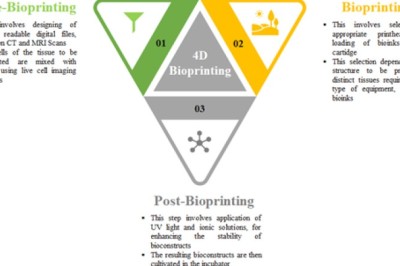views
Inpatient rehab programs are an effective way to help people recover from substance use disorders (SUDs). But just how beneficial is inpatient treatment compared to other options? It turns out there are many aspects of inpatient rehab that people might be unaware of. When considered together, these aspects show a comprehensive approach to recovery. Here are the benefits of inpatient rehab programs.
Understanding the Complexity of SUD
Substance use disorders (SUDs) are much more complex than people think. One of the most important things to understand about an SUD is that it’s based on what we know about the nature of addiction. Addiction is a chronic illness, a disease that changes the brain’s functioning. Of course, when we think about SUD in this way, it tells us a lot of things. Perhaps the most important thing is it tells us that addiction is not a matter of failed willpower. By abusing these substances and developing an addiction, our brains are rewired and begin to associate these substances with reward and euphoria. Willpower will not be a long-term solution to overcome a rewiring of the brain; it will take a comprehensive approach.
Additionally, each person’s life experience and contributing factors that led to developing an SUD will often look different, not to mention the social environments that affect their daily lives. People might also be unaware of the complex nature of SUD, which can include co-occurring mental disorders. These mental health disorders can include anxiety, depression, attention-deficit hyperactivity disorder (ADHD), and many others. Sometimes an SUD is caused by these mental disorders, and substances become a coping mechanism for people who may have been unaware that they had a mental disorder in the first place. Other times, these mental disorders are co-occurring, meaning one did not specifically cause the other. This is important because it means people who have an SUD may assume their symptoms are restricted to the substances they abuse. Again, this highlights the importance of a comprehensive approach to treating SUD.
A Comprehensive Approach to Complexity
The more we understand the complex nature of SUD, the more we can come to appreciate the comprehensive approach that comes with inpatient rehab. Inpatient treatment means patients receive treatment on-site instead of an outpatient or self-treatment approach. When someone begins an inpatient treatment program, they won’t find themselves thrown into a copy-and-paste routine that looks exactly the same for everyone. Instead, they can expect medical professionals to conduct a thorough evaluation. This not only helps them come up with an effective treatment plan for SUD, but it also brings to light whether there are co-occurring mental disorders, ensuring that the treatment specifically addresses all angles.
Inpatient treatment is also beneficial because it means patients have 24-hour access to medical professionals and 24-hour monitoring from medical professionals. Withdrawal symptoms can take on a variety of forms and intensities from patient to patient. Certain medications and dosage amounts might need to be explored in the dangerous process of tapering off opioid misuse, and so on. These scenarios highlight the potential danger and ineffectiveness of trying to overcome addiction on our own. They also highlight how helpful it is to undergo inpatient treatment. Having medical professionals by our side every step of the way means that treatment programs can continually be tweaked and modified as needed to ensure the best possibility for a full recovery.
Taking the Next Step
While outpatient treatment or hybrid approaches to dealing with SUD are not irrelevant, studies show that professional treatment has the best rate of success. For many people, the new environment and structured approach to inpatient treatment make a huge difference and contribute to their ongoing success in recovery. If you or someone you know is considering SUD treatment, or if you have not responded well to other approaches, inpatient treatment is worth considering as a comprehensive approach to the complexities of addiction.
Sources
Delphi Health Group. (n.d.). Guide to Drug Addiction: Symptoms, Signs, and Treatment. Retrieved https://delphihealthgroup.com/addiction/
National Institute of Mental Health. (2021 March). Substance Use and Co-Occurring Mental Disorders. Retrieved https://www.nimh.nih.gov/health/topics/substance-use-and-mental-health
Delphi Health Group. (n.d.). Inpatient Treatment Programs for Substance Abuse. Retrieved https://delphihealthgroup.com/our-services/inpatient-rehab/
NIH. (2015 June). Substance Abuse Intensive Outpatient Programs: Assessing the Evidence. Retrieved https://www.ncbi.nlm.nih.gov/pmc/articles/PMC4152944/
National Library of Medicine. (2009). Clinical Guidelines for Withdrawal Management and Treatment of Drug Dependence in Closed Settings. Retrieved https://www.ncbi.nlm.nih.gov/books/NBK310652/
U.S. Food and Drug Administration. (2019 April 9). FDA identifies harm reported from sudden discontinuation of opioid pain medicines and requires label changes to guide prescribers on gradual, individualized tapering. Retrieved https://www.fda.gov/drugs/drug-safety-and-availability/fda-identifies-harm-reported-sudden-discontinuation-opioid-pain-medicines-and-requires-label-changes
National Library of Medicine. (2006 February). Rates and predictors of relapse after natural and treated remission from alcohol use disorders. Retrieved https://www.ncbi.nlm.nih.gov/pmc/articles/PMC1976118/

























Comments
0 comment